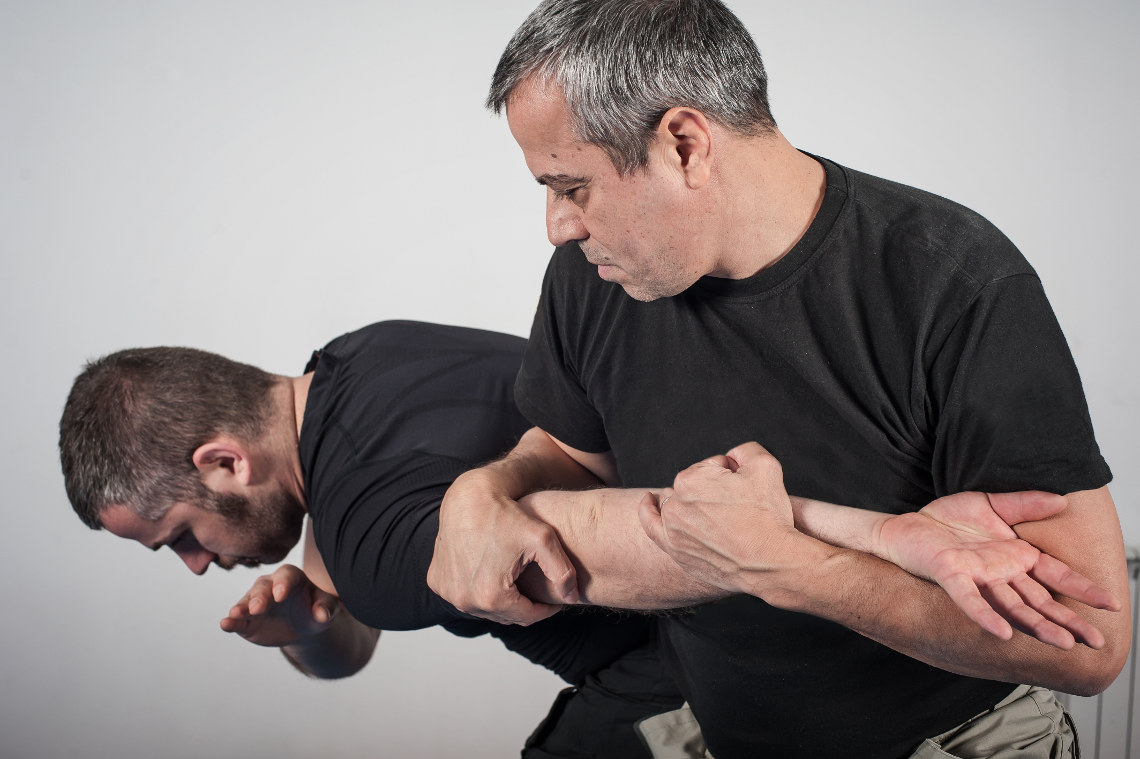Krav Maga: The self-defense method born in Bratislava
Krav Maga or “Contact Combat” in Hebrew is a system of self-protection and draws on a wide range of fighting and martial arts influences, such as Boxing, Judo, Karate, Ju Jitsu and Kick Boxing. At the core of Krav Maga, like in most martial arts, is the principal that fighting should always be avoided if possible. But if that is an impossibility, then a fight should be quick but brutal.
History
The roots of this practice originate in the early 20th century. In 1930s Bratislava the rise of fascist and anti-Semitic gangs inspired a young Imrich (‘Imi’) Lichtenfeld to employ his experiences in boxing and wrestling, and adapt them to design this effective method of street fighting in an attempt to protect Jews from persecution. It was here that the foundations of what would become known as ‘Krav Maga’ were created.
Born in 1910 to a Hungarian Jewish family, Lichtenfeld moved with his family to Bratislava as a child, where his father was employed in the police force. His father also owned a gymnasium and taught self-defense. Lichtenfeld was a talented boxer and wrestler, which contributed to his abilities as a fighter.
In 1940 Lichtenfeld fled the Nazis, eventually reaching Palestine. After the creation of the State of Israel in 1948, he was instrumental in establishing Krav Maga as part of the core training for soldiers in the Israeli Defence Force (IDF).
Over the 70 years of Israel’s modern day existence, Krav Maga has evolved and will continue to do so, to match the evolution of aggressor methods of attack. It is the continual reflection, analysis and design that makes Krav Maga so relevant for those who seek to protect themselves and others and perhaps justifies why it is a required discipline in more than 500 law enforcement and military organisations worldwide.
Key Features
Students of Krav Maga are taught to defend against a range of attacks and counter those attacks with quick and efficient methods. Typically, these might include:
* Use of physical aggression
* Pre-emptive attack or immediate counter-attack
* Use of nearby objects to strike opponent
* Targeting vulnerable areas: eyes, neck, throat, solar plexus, groin, etc.
* Use of basic, repeated strikes
However, it is important to note that any physical aggression only ever follows acute vigilance, anticipation and tactical expertise in how to prevent an attack.
Krav Maga Today
Krav Maga continues to be popular today, from children’s extra-curricular self-defense classes to being a key training element for professional private security companies.
Re’em Rotem, Director of Operations at security company, 1st Class Protection, understands the importance of comprehensive training of his security guards, which goes far beyond the standard SIA programme - the legal minimum standard for any security officer.
He details how his experience of Krav Maga from the IDF, as well as from working closely with Gideon Hajioff of Hendon's Dynamic Self Defence Academy, now informs his training of security guards here in London:
"We make a point of including Krav Maga in our staff training program because we believe in the philosophy that it is only when someone is able to defend themselves that they can be capable of defending others.
Once they learn the skills and theory behind Krav Maga, our guards are noticeably more confident, which we believe to be one of the most important attributes of a security officer.
A guard with confidence is a guard that our clients can be confident in - to keep them safe and protect them to the best of their ability."
Want to know more?
If you are interested in find out more about Krav Maga, take a look at these useful links below:
www.dynamicselfdefence.com
www.israelimartialarts.com
Sign up to our newsletter for the latest security news, information and updates.
